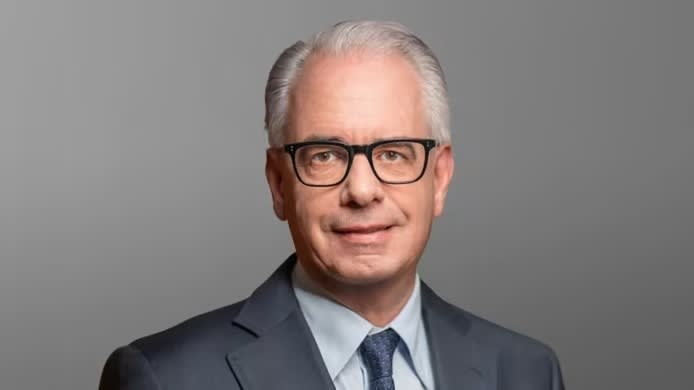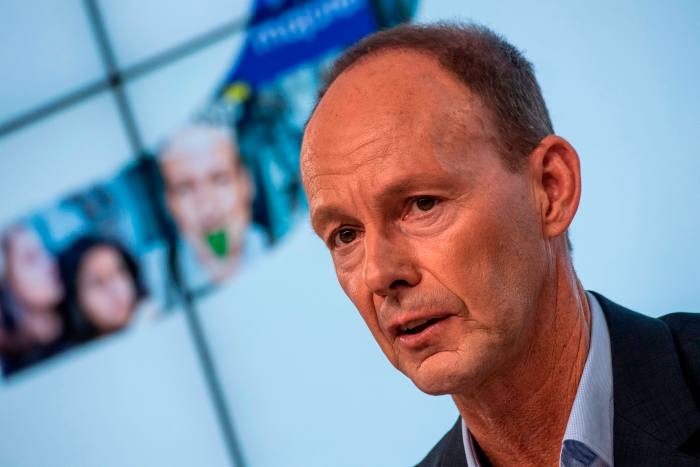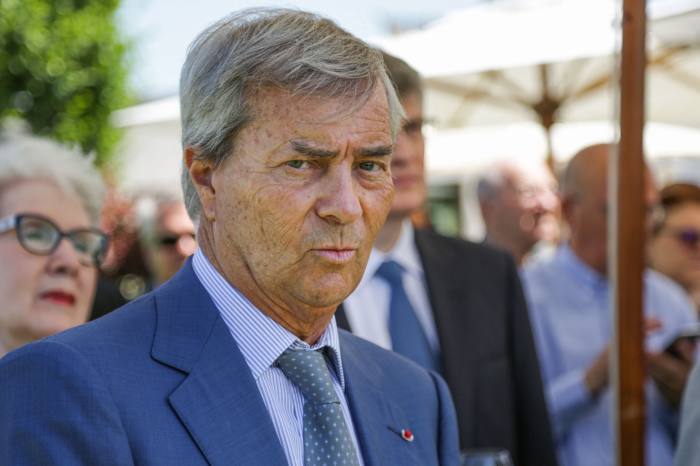
One invite to start: We are weeks away from our first annual summit — Due Diligence Live. Join us on October 12 in London for a panel on private capital in an age of market uncertainty and much more. Get your pass here.
Welcome to Due Diligence, your briefing on dealmaking, private equity and corporate finance. This article is an on-site version of the newsletter. Sign up here to get the newsletter sent to your inbox every Tuesday to Friday. Get in touch with us anytime: [email protected]
In today’s newsletter:`
Carving up Credit Suisse
When Credit Suisse took control of investment bank First Boston, it came on the heels of a giant loan loss that became known on Wall Street as “the burning bed”.
First Boston, an aggressive financier of leveraged buyouts during the go-go 1980s, lost $457mn financing the takeover of Ohio Mattress. Credit Suisse had to bail out First Boston in 1990, and the Swiss private bank eventually renamed itself Credit Suisse First Boston to punctuate its arrival on Wall Street.
Credit Suisse is now retreating from many lucrative but high-risk corners of finance and trying to rekindle its private banking roots. It has drawn up plans to split its investment bank into three, the FT’s Owen Walker revealed.
The potential break-up, which hasn’t been decided but could be unveiled with the bank’s third-quarter results due next month, is part of an effort by recently installed chief executive Ulrich Körner to emerge from three years of relentless scandals and shore up its financial position.

The latest proposals under consideration would see the investment bank divided into three parts: the group’s advisory business, which could be spun off at some later point; a bad bank to hold high-risk assets that will be wound down; and the rest of the business.
The so-called “bad bank” would silo assets that carry high capital charges and non-core business lines that don’t mesh with Credit Suisse’s new strategy of focusing on wealth management. Those include its securitised products unit, which packages up debts such as mortgages and loans for yachts.
To ensure its advisory business won’t suffer continued brain drain, Credit Suisse directors Michael Klein and Blythe Masters have floated the idea of offering investment bankers equity stakes in the business.
Körner, who gained a nickname of “Uli the knife” during his 11 years at domestic rival UBS, is keen to live up to his cost-cutting reputation.
He returned to Credit Suisse in 2021 to replace asset management head Eric Varvel, who became entrenched in Australian financier Lex Greensill’s web of supply chain finance funds.
After replacing Thomas Gottstein as chief executive in July, all eyes turned to Körner to see his turnround plans and how deep cuts would go.
Credit Suisse is finalising plans for thousands of job cuts, which could affect more than 10 per cent of its 45,000 global workforce, people with knowledge of the plans told the FT.
The costs of the clean-up could create a $4bn hole in the group’s capital position, Deutsche Bank analysts estimate.
In many ways, Körner is trying to avoid a similar fate as First Boston nearly a quarter-century ago. Credit Suisse, a giant in leveraged finance, risks absorbing heavy losses from the end of an epic dealmaking boom.
It acted as a lead underwriter of the takeover of software company Citrix, which priced poorly on Tuesday and will lose underwriters far more than the “burning bed”.
Perhaps fittingly — or with a tinge of irony — Credit Suisse is considering reviving the First Boston brand for its investment bank.
The billionaire battle for France’s M6
French business has long been dominated by a slew of billionaires who own the country’s biggest and most influential companies. The upcoming (re) auction of M6, the second-biggest private television broadcaster, is a vivid example of what happens when the tycoons have their eyes on the same prize.
First, a reminder of how we got here: German media group Bertelsmann, which owns M6, last year agreed to merge it with its larger French rival TF1, the number-one private broadcaster that is part of conglomerate Bouygues. (The eponymous group is named after the billionaire Bouygues family that still controls it.)

But French competition regulators saw the merger as an unacceptable concentration of power in the TV advertising market. After more than a year of competition review, the regulatory opposition caused Bouygues and Bertelsmann to pull the deal.
Less than a week later, the German group is looking for a new buyer and has asked for non-binding offers to be submitted by Friday, people familiar with the process told the FT.
Cue the billionaire parade. Among them are the usual suspects that bid and lost last time around: telecoms tycoon Xavier Niel via his Mediawan production company, and Vivendi, which is backed by another tycoon, Vincent Bolloré.

But there are also some new players, including an intriguing consortium of prominent French entrepreneurs led by Rodolphe Saadé, whose family owns maritime transport group CMA-CGM, Stéphane Courbit of TV production group Banijay, and investor Marc Ladreit de Lacharrière.
It remains to be seen if Bertelsmann will go through with the sale or if it is just testing the waters to see what valuations are on offer. One complication is a tight timetable caused by the looming renewal of M6’s broadcast licence. In any case, the billionaires are lining up.
Job moves
-
Paul Zwillenberg, the chief executive of the Daily Mail publisher, has resigned and is to be replaced by its chair Lord Rothermere, great-grandson of the newspaper’s founder, in a move that cements direct family control of the UK media business.
-
Anthony Hartley, Citigroup’s head of healthcare investment banking in Europe, is stepping down from the bank after six years in the role, per Financial News.
-
KKR has appointed Alexander Thams as head of Nordics within its European real estate team, based in Stockholm. He joins from Pictet Alternative Advisors.
-
Fried, Frank, Harris, Shriver & Jacobson has hired James Renahan as an M&A and private equity partner in London. He joins from Travers Smith.
-
Kirkland & Ellis has hired M&A lawyer Sara Pickersgill as a partner in London. She joins from Allen & Overy.
-
Latham & Watkins has hired Matthew Friedrich as a real estate partner in Los Angeles. He joins from Winston & Strawn.
Smart reads
Mile-high meals As they struggle to turn a profit, airlines are increasingly serving up elaborate first class luxuries such as lobster thermidor and “bottomless caviar” to keep high-flyers engaged. The whole thing comes off in poor taste, writes Kitty Drake for FT Magazine.
The Solomon show Goldman Sachs chief executive David Solomon’s personal branding efforts, from asking staff to assist with his DJ side gig to using the company jets for personal use, have hit the wrong note with some employees, Business Insider reports.
High-stakes trade The safe return of basketball star Brittney Griner, detained on cannabis charges in Russia, could depend on Queens, New York-based criminal defence attorney Steve Zissou’s plan to swap his Russian arms dealer client for both prisoners’ freedom, New York Magazine reports.
News round-up
US senators increase pressure on Apple over possible Chinese chipmaker deal (FT)
Chinese tech executives pay fines after SEC insider trading charges (FT)
FTX was in talks with FCA about crypto licence before watchdog’s warning (FT)
Big tech groups face probe by UK regulator over cloud services (FT)
Singapore’s GIC to take majority stake in luxury Sani/Ikos resorts (FT)
Activist investor Ancora looks to oust Kohl’s CEO, chair (Wall Street Journal)
Polymetal scraps dividend as sanctions bite (FT)
JD Sports defends £6mn payment to former chair Peter Cowgill (FT)
Recommended newsletters for you
Cryptofinance — Scott Chipolina filters out the noise of the global cryptocurrency industry. Sign up here
The Lex Newsletter — Catch up with a letter from Lex’s centres around the world each Wednesday, and a review of the week’s best commentary every Friday. Sign up here
